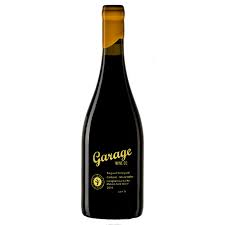
These are also wines on the ‘natural’ side of the spectrum,, showing plenty of savory, earthy elements complementing the crisp fruit and floral characters: fermented with native yeast, the skins are manually punched down in small batches (sometimes first crushed by foot), then pressed in an old-fashioned basket press, age in older barrels to avoid covering the fruit, and add only small amounts of sulfites after fermentations are done. The traditions of farming here are mostly intact: they and their sources practice organic or sustainable farming without irrigation, involving local farmers and workers who know the vineyards well, and who often use horses to plow. Even the source of the recycled bottles, the paint rather than paper labeling, and wax sealing are all a result of finding local solutions for their needs since suppliers wouldn’t work with their small productions.
_______________________________________________________________________________________________
WINE ADVOCATE 95 POINTS - "The 2018 Bagual Vineyard Cariñena Garnacha Monastrell marked with lot #96 (in the past, this wine has been bottled with numbers 76, 66, 56 and 46) comes from the same vineyard as the pure Garnacha—only 1.1 hectares of old vines with a field blend of the three varieties (even if the Garnacha was regrafted much later). Also like the pure Garnacha, this 2018 is rounder and has better quality tannins than the 2019. This is earthy and very much marked by the Cariñena character, with good ripeness and freshness. Malolactic usually takes around seven months, and the élevage is extended over two winters in third use or older, well-seasoned and neutral barrels. This reminds me of an elegant Priorat. 4,971 bottles were filled in January 2020."


